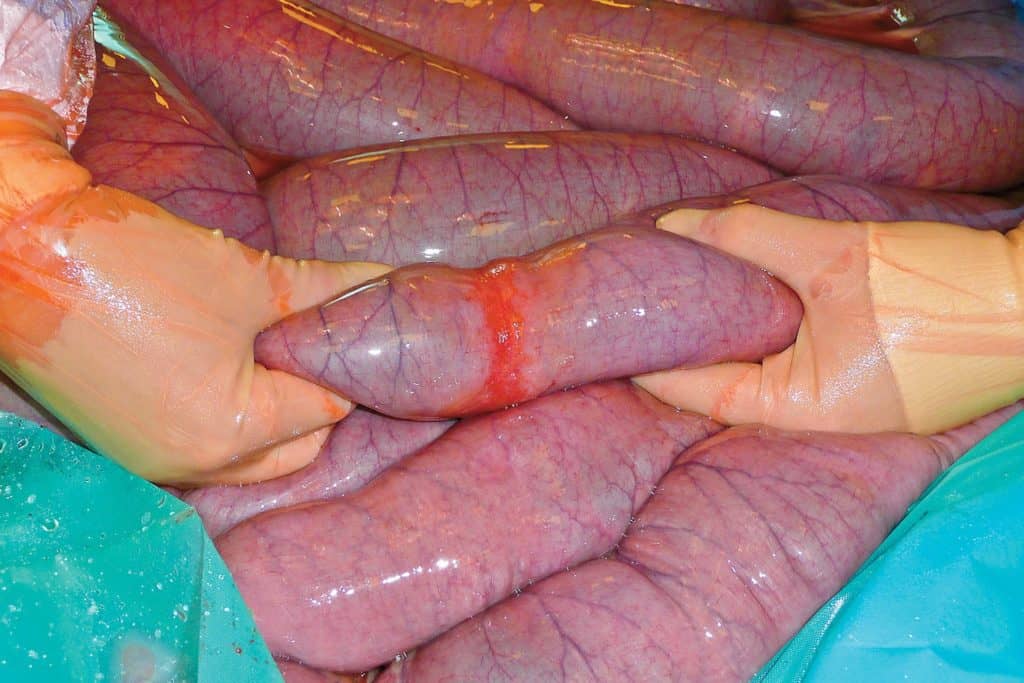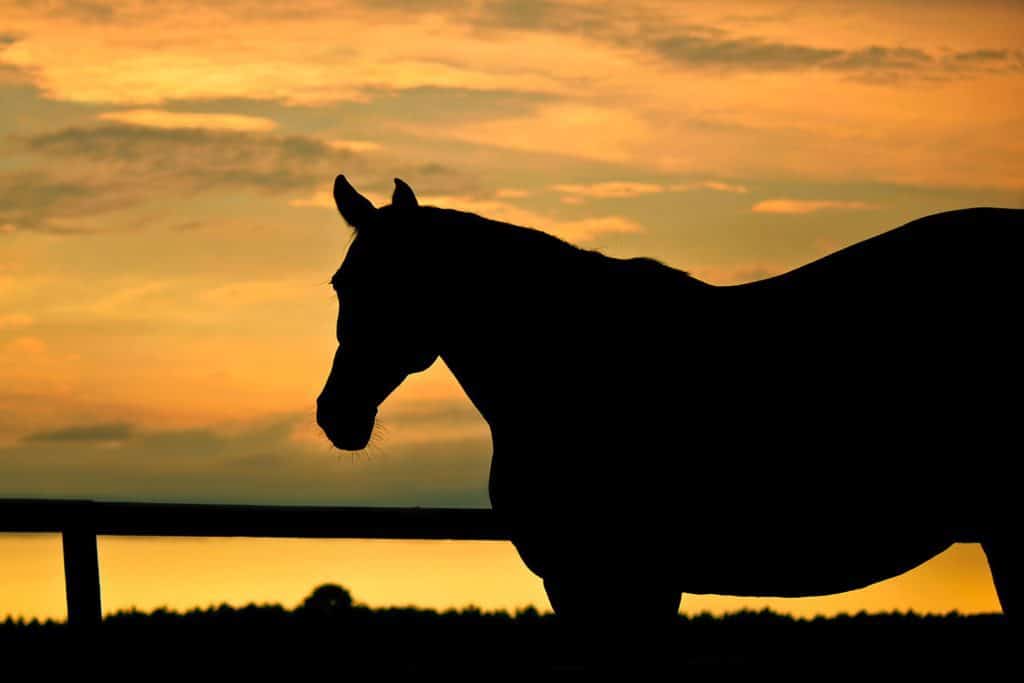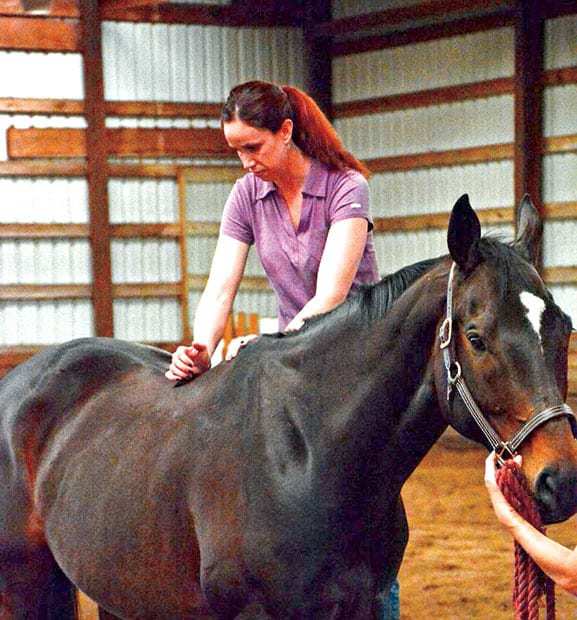What is Your Horse’s Fecal Egg Count Telling You?

Find out how a fecal egg count test can help you better target the parasites in your horse herd.
Preparing Mares for Foaling

Spring is an exciting time for many breeders, as it likely marks the last trimester of their mares’ pregnancies. Due to the rapid changes that occur in the last few months of gestation, it is imperative that owners monitor mares closely.
Improving the Standard Tieback Technique

Surgeons have honed a new approach to correct airway collapse in horses.
What is Eosinophilic Enteritis in Horses?

Learn more about this challenging inflammatory condition that affects the horse’s intestines.
Getting a Jumpstart on Joint Infections

Infected joints can be scary and cause stress, but early aggressive treatment offers the best chance for full recovery.
Understanding the Mare’s Transitional Period

Find out how light can impact a mares’s ovulatory cycles.
SCC: Not So Easy on the Eyes

Squamous cell carcinoma is the most common cancer of the equine eye. Here’s what you need to know.
Indications for Joint Injections

Your vet might choose to inject your horse if his joints require direct treatment due to disease, inflammation, or pain.
The Benefits of Chiropractic Care for Your Horse

Chiropractic provides another means of diagnosis and treatment for many musculoskeletal disorders.
CEM: What Every Stallion Owner Should Know

Here are some steps breeders should take to help keep the United States free of contagious equine metritis (CEM).
Understanding Anhidrosis

Learn more about this potentially dangerous condition in horses and how to manage it.
Wobbler Syndrome: What We Know and Where We’re Headed

Find out what you need to know about this devastating neurologic disease and what research developments are underway.
Getting to the Bottom of a Bite

Toxic reactions to bites are uncommon in horses, but when they do occur the consequences can be serious.
The Aftermath of Vesicular Stomatitis

The large-scale VS outbreak in 2014 caused extended quarantines and transportation headaches for horse owners.
Understanding Coronavirus

For years, veterinarians have recognized equine coronavirus (ECoV) as a cause of intestinal disease in foals. Recently, however, gastrointestinal illness associated with ECoV has been seen in adult horses.
EPM’s Lesser-Known Cause: N. hughesi

Researchers are studying the epidemiology of Neospora hughesi in horses with equine protozoal myeloencephalitis (EPM).







